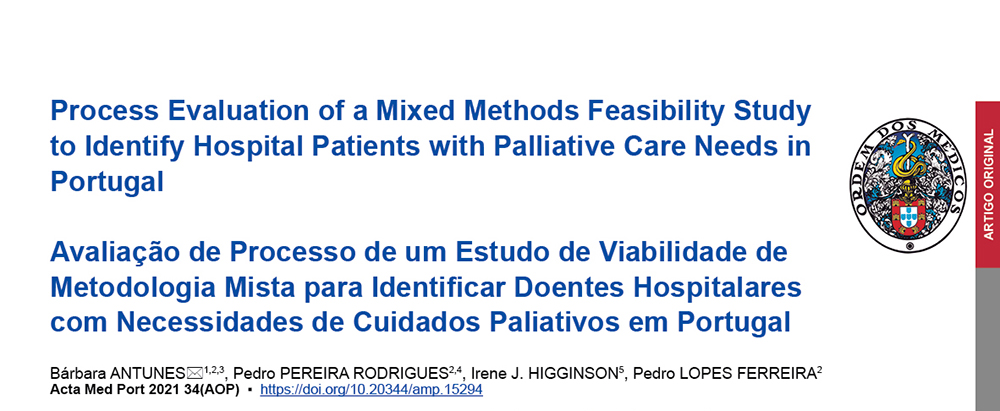SOCIAL MEDIA
Portuguese Medical Association's Scientific Journal

Introduction: Evidence shows most patients are not recognised by their attending healthcare professionals as having palliative needs. This feasibility study aimed to aid healthcare professionals identify hospital patients with palliative needs.
Material and Methods: Mixed-methods, cross-sectional, observational study. The patient inclusion criteria comprised: age over 18 years old, being mentally capable to give consent judged as such by participating healthcare professionals, and if unable, having a legal substitute to consent, having a diagnosis of an incurable, potentially life-threatening illness. Field notes were taken for reflexive purposes. Outcome measures included: Integrated Palliative Care Outcome scale, surprise question, phase of illness, referral request status, The Eastern Cooperative Oncology Group Performance Status and social needs assessment. An interim data collection period meeting assessed implementation outcomes in each context. A web-based survey was sent to all participating healthcare professionals at the end of data collection period to explore overall experiences of participation and implementation outcomes.
Results: Forty-two departments in four hospitals were contacted. The study was presented in nine departments. The field notes were vital to understand the recruitment process and difficulties experienced: time constraints, fear of additional work, department dynamics and organisation, relationships between departments and need of training in palliative care and research. One department agreed to participate. There were six participating healthcare professionals and only 45 patients included. Three participating healthcare professionals responded to the web-based survey.
Discussion: The response rate was very low. Legislating palliative care is not enough, and an integrated palliative care plan needs to be implemented at country and institution level.
Conclusion: There is an urgent need to provide generalist palliative care training to clinicians.